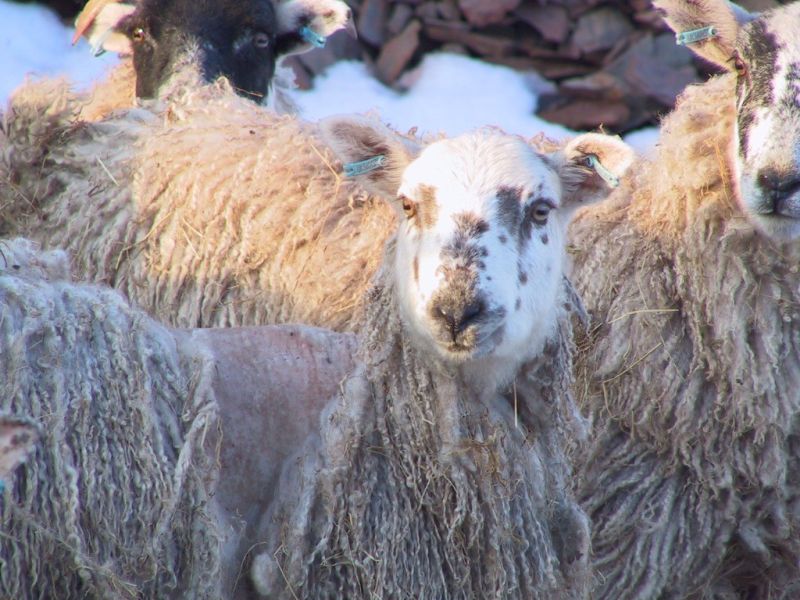
A new study spearheaded by 40 veterinary practices wants to remove the shame sheep scab carries and increase the disease's transparency.
Independent veterinary practices, who cooperate under the XLVets community banner, have banded together to carry out a nationwide study on sheep scab.
Caused by the mite Psoroptes ovis, sheep scab was notifiable in the UK until 1992 and was only made notifiable again in Scotland in 2010.
The study was suggested by vet Emily Gascoigne of Synergy Farm Vets, who noticed that hers was one of the few practices voluntarily reporting cases in England.
Around 40 practices are taking part, with their participation prompted by concerns that a lack of transparency about the disease could lead to its proliferation.
It is feared that without local surveillance, farmers don’t know when there is a risk and there are also concerns around disclosure.
The vets say many sheep farms across the country are not testing for sheep scab as it is easily mistaken for lice infestation.
However, once a flock is affected by sheep scab it can be time consuming and expensive to control, as well as posing significant welfare issues.
The options are plunge dipping with organophosphorus or macrocyclic lactone injectables. As a result of concerns about resistance to Group 3-ML wormers, when targeting external parasites, it is advised that more specific products are used, such as organophosphorus dip, delivered using on-farm or mobile plunge sheep dippers.
James Frayne, of Millcroft Veterinary Group in Cumbria said different farms need custom solutions: “Not everyone has the training and facilities to carry out plunge dipping.
"Others don’t have the manpower to allow for frequent handling and may need to opt for longer term injectables that require competency in specific injection techniques.
"Resistance and previous history also need to be taken into account. It’s important for us to listen and understand the specific challenges on individual farms to find out how best to support a management programme.”
The initiative is being supported by Bimeda UK, who provide an online Sheep Scab Academy that helps veterinary surgeons and SQPs stay up to date with best practice for sheep scab control.
Bimeda UK’s professional services vet Sharon Cooksey, explains that sheep scab causes intense itching which leads to significant self-inflicted trauma.
"If left untreated, it leads to rapid and significant weight loss, low birthweights and higher mortality in lambs born to infected pregnant ewes, and death in the worst affected cases.
"This situation is hugely distressing to the farmer and causes substantial economic losses."
Emily Gascoigne said the study was about more than simply identifying areas of the country that were sheep scab hot spots.
“The results will help to quantify the problem but we are also tackling the other side of the coin by trying to make sheep scab less of a taboo," she said.
"The potential for contiguous infection from one farm to the other, means that forewarned is forearmed.
"When we talk about ‘farms as a fortress’ we realise the multiple risks for the introduction of scab resulting from a failure of biosecurity at boundaries or during quarantine, and it can also be brought in on people, deliveries or equipment."
There are also worries about whether that will affect the sale-ability of their stock or their relationship with their farming neighbours.
"We want to encourage vets and farmers to start the conversation and to start actively testing for sheep scab," Ms Gascoigne said.
"We’re also looking more widely at the potential for anonymous reporting systems that will alert farmers across a general area when sheep scab is a risk.”
The survey has been running since the start of October and will continue for the next five months, with results expected around March 2021.
The study is using skin scrapes to minimise unnecessary person to person contact during the ovid-19 pandemic, but blood sampling can also be used to test flocks.
